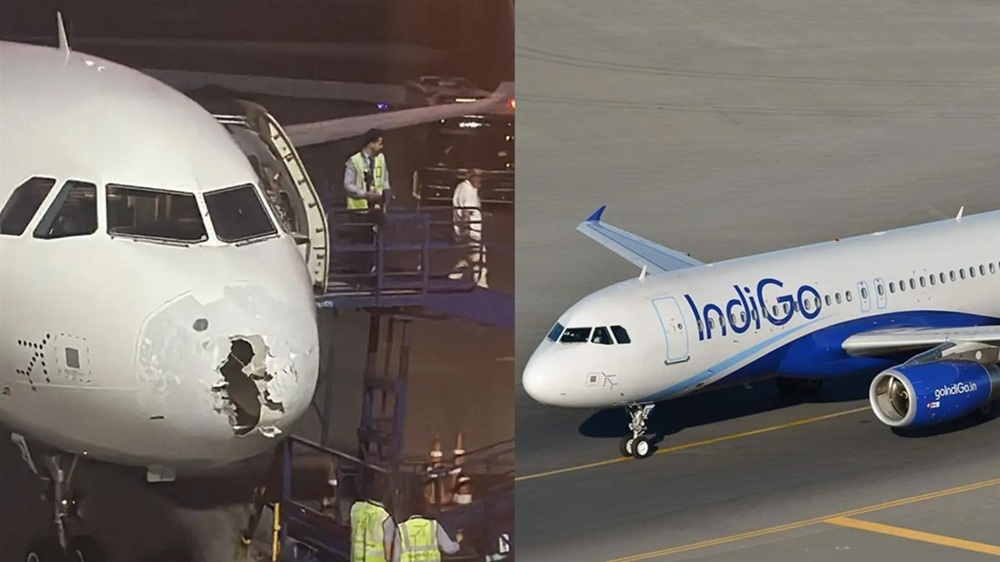In a concerning development that underscores how geopolitical rivalries can endanger civilian aviation, Pakistan denied airspace access to an Indian commercial flight facing a mid-air emergency on May 21, 2025. The aircraft, operated by India's low-cost carrier IndiGo, encountered extreme weather conditions and requested a brief route diversion through Pakistani airspace—an appeal that was ultimately rejected. The decision has reignited debate around the ethics and legality of airspace restrictions during emergencies and brought the Indo-Pak diplomatic standoff back into sharp focus.
The Flight in Crisis
The incident involved IndiGo flight 6E-2142, an Airbus A321neo operating a routine domestic route from Delhi to Srinagar, carrying 227 passengers. As the aircraft cruised over northern India, it encountered an intense hailstorm and sudden turbulence, resulting in visible damage to the aircraft’s nose cone and causing distress among passengers.
According to IndiGo and Indian aviation officials, the pilots quickly assessed the risk and decided to request a diversion into Pakistani airspace to avoid the full brunt of the weather system. Such a diversion, although rare for a domestic Indian flight, would have enabled the aircraft to avoid the storm safely and re-enter Indian airspace shortly after stabilizing.
The request was directed to Lahore Air Traffic Control (ATC). However, the response from Pakistan was clear and uncompromising: Permission denied. With no other immediate options, the flight crew declared an emergency and proceeded toward Srinagar, navigating through remaining turbulence before landing safely around 6:30 PM IST. No injuries were reported, but the aircraft sustained structural damage and was grounded for inspection and repairs.
A Ban Rooted in Conflict
The denial of access did not occur in isolation. It came in the midst of a renewed period of tension between India and Pakistan triggered by a terrorist attack in Pahalgam, Jammu & Kashmir, on April 22, 2025, that killed 26 Indian tourists. India blamed Pakistan-based terror groups and launched Operation Sindoor, a limited military operation targeting alleged militant bases across the Line of Control.
In response, Pakistan closed its airspace to Indian civilian flights on April 24, citing national security concerns. India responded with reciprocal restrictions on April 30. The ban has disrupted routes, delayed international operations, and forced airlines like IndiGo to suspend flights to Central Asia that rely on westward Pakistani airspace.
While airspace closures in times of political tension are not unprecedented, what sets this event apart is the refusal of access during a clear in-flight emergency. That action could violate both international aviation norms and the moral responsibility of ensuring passenger safety above political maneuvering.
Aviation Ethics vs. Sovereignty
The International Civil Aviation Organization (ICAO), under the Chicago Convention, sets guidelines for how nations should manage their airspace. While Article 9 of the convention allows for the closure of airspace due to national security, the principle of humanitarian neutrality strongly encourages nations to prioritize the safety of civilian lives, especially during emergencies.
Aviation experts have pointed out that even during wars or diplomatic crises, emergency flights are often granted temporary permissions to overfly restricted airspace if doing so reduces the risk of injury or catastrophe. ICAO does not have enforcement powers, but it can open investigations and offer recommendations when member states act in ways that endanger civil aviation.
Indian aviation authorities, including the Directorate General of Civil Aviation (DGCA), have confirmed that the matter is under review. An official from the DGCA told reporters that the flight crew did everything by the book and showed remarkable professionalism under pressure. A detailed report is expected to be submitted to the ICAO by India in the coming weeks.
Public and Political Fallout
News of the airspace denial quickly spread across Indian media and social platforms. Hashtags like #SkyNotWarzone, #PakistanAirspace, and #IndiGoFlight trended for hours. Indian citizens, including aviation professionals and political commentators, expressed anger and disbelief at what many are calling a "reckless" and "inhumane" decision.
The Ministry of Civil Aviation of India issued a brief statement condemning the denial, saying, “In times of emergency, global aviation must stand above political differences. The safety of innocent passengers cannot be held hostage to ground-level conflicts.”
Meanwhile, the Pakistan Civil Aviation Authority has not issued a public comment as of this writing. However, defense analysts in Islamabad have defended the decision, stating that airspace bans are a matter of sovereign right, especially when national security is perceived to be at risk.
A Dangerous Precedent?
This incident has set a troubling precedent for future civilian aviation in conflict-prone regions. With diplomatic standoffs increasingly spilling over into commercial domains—be it in air travel, trade, or communication—passengers are often the collateral damage. While the IndiGo flight landed safely, the question lingers: What if it hadn’t?
If geopolitical rivalries continue to override humanitarian responsibilities, incidents like this may become more common—and more dangerous. The global aviation community must now consider how to ensure that emergency protocols override political restrictions, especially when the lives of hundreds are in the balance.
Conclusion
The May 21 IndiGo flight incident was more than just a mid-air emergency—it was a case study in how regional politics can compromise global safety norms. As both India and Pakistan hold firm on their respective policies, international aviation bodies must take the lead in reaffirming the principles of safety and neutrality that have long governed the skies.
Until then, every flight crossing contentious borders will carry not just passengers and cargo, but the weight of unresolved history and fragile diplomacy.
